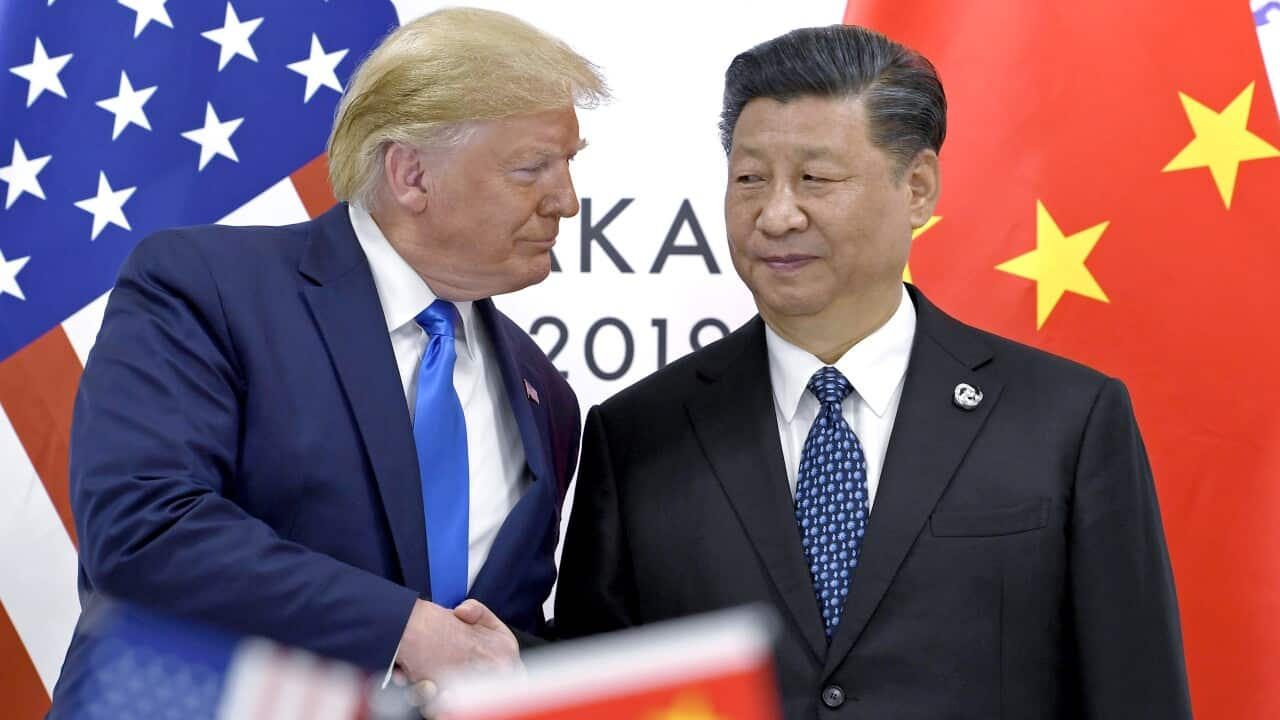United States President Donald Trump will meet Chinese President Xi Jinping next week as part of a trip to Asia, the White House confirmed, following speculations that escalating trade tensions might derail the talks.
White House press secretary Karoline Leavitt told reporters Trump will depart for Malaysia late on Friday night and will also visit Japan and South Korea, where he will meet Xi next Thursday after addressing the Asia-Pacific Economic Cooperation (APEC) CEO Summit.
"On Thursday morning local time, President Trump will participate in a bilateral meeting with President Xi of the People's Republic of China, before departing to return home," Leavitt said.
He will also meet Malaysia's Prime Minister Anwar Ibrahim on Sunday, Japan's new Prime Minister Sanae Takaichi in Tokyo on Tuesday and South Korean President Lee Jae Myung in Busan on Wednesday.
A US-China trade war, which had been simmering for months, exploded into full view in early October, after China expanded curbs on exports of rare earth minerals.
Trump had quickly threatened to retaliate with tariffs and other measures, but has in recent days expressed optimism about reaching a trade deal with China.
"I think we're going to come out very well, and everyone's going to be very happy," Trump said of the meeting.
Those comments have been in contrast to more strident remarks from his top trade negotiator and finance chief, who were headed to Asia on Wednesday to keep Trump's meeting with Xi, the first of his second term, on track.
Trump said the first question he would ask the Chinese leader would be about fentanyl.
"I'm putting it right at the front of the list," Trump said.
The US accuses China of failing to curb the flow of precursor chemicals for fentanyl, a leading cause of overdose deaths in the US. China has defended its drug control record and accused the US of using fentanyl to "blackmail" China.
The White House used the flow of the chemicals from China as one justification for increasing tariffs on Chinese goods.
What's at stake?
The meeting could be an opportunity for Trump to discuss China's ongoing restrictions on rare earth minerals, which are key ingredients in military technology.
Nathan Gray, a senior research fellow at the Institute for International Trade at the University of Adelaide, said Trump is looking to address shortages of these minerals.
China has been gradually ramping up its export controls on rare earth minerals since 2023, according to Gray, not only restricting the minerals themselves but also the methods used to process them.
"Trump and the US thought they had absolute dominance in terms of trade and placing tariffs on China," he told SBS News.
"But China has been able to escalate on this one issue and cause a headache for the US."
While Trump has been looking to diversify how the US accesses these minerals, most recently through a deal with Australia, China still holds significant power, Gray said.
China has a monopoly on key minerals like gallium and antimony, and even though roughly 50 per cent of lithium comes from Australia, it is still processed in China.
"This is preventing the US military from accessing these minerals, which are components of touch screens, missiles and radar systems," Gray said.
"Trump will be looking to do what he can to negotiate access to these minerals."
But he said China is unlikely to reduce export controls, as they are an effective "bargaining chip" in the ongoing tit for tat tariff war with the US.
With additional reporting by Reuters.
For the latest from SBS News, download our app and subscribe to our newsletter.

